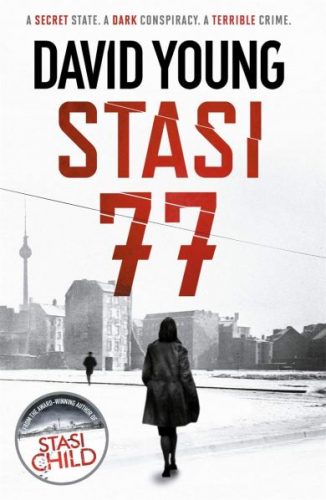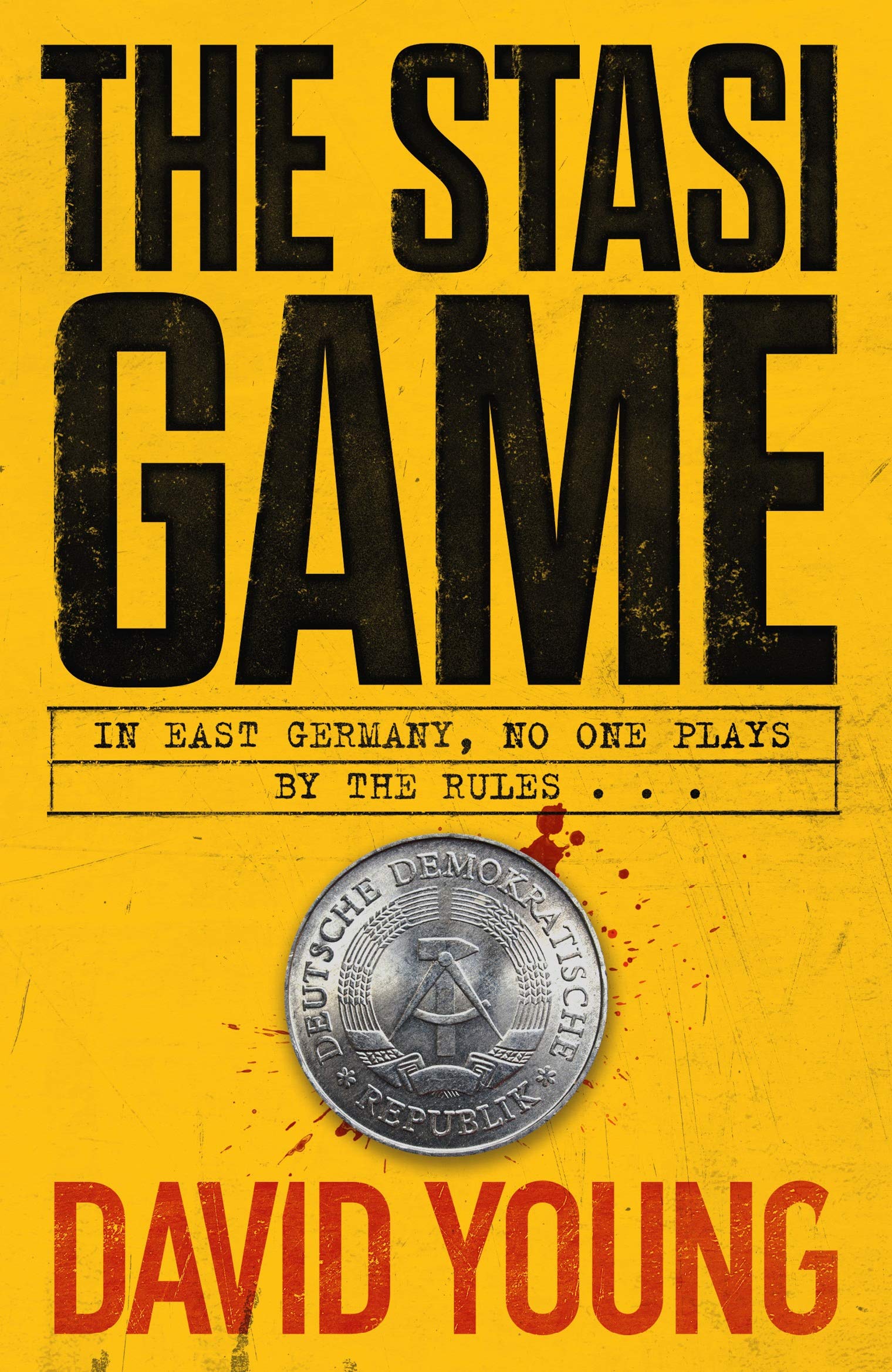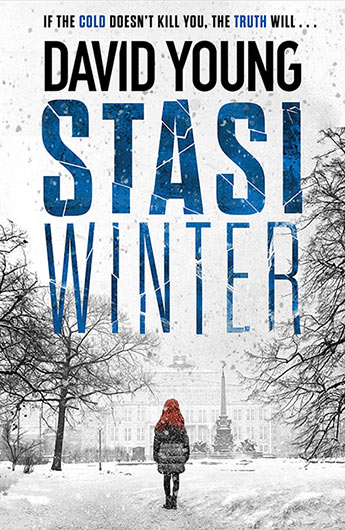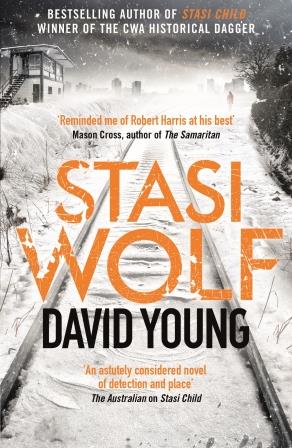
This is story that deserves to be told.
Although Young’s characters are fictional, the events depicted in 1945 during the death throes of Nazi Germany, are horrific facts. Though this is a primarily a detective story, it’s clear that ‘Stasi 77’ also functions as a disturbing reminder, not just of certain historical events, but of the fact that certain perpetrators didn’t just survive – they thrived.
How should we judge those who were never brought to justice? Can we ever begin to empathise with their position? Should we try to? Or is it as simple as justice seeking Major Karin Muller believes: those who did not reject the prevailing Nazi culture should be decisively reviled? I suspect David Young takes a more nuanced approach than his young detective, whose visceral reaction to any Nazi memorabilia might seem excessive if it didn’t fit perfectly with her innocent, genuine commitment to the DDR.
What’s it about?
Secrets. Crimes. Cover ups. Spies. More specifically? A man is found murdered in a mill that used to be a concentration camp. The manner of his death suggests someone is seeking revenge – especially when further deaths surface.
Major Karin Muller is initially tasked with investigating the crime (indeed, the powers that be are so keen to avail themselves of her expertise that she is instructed to cut short her family holiday to do so), but as soon as she starts to delve into the dead man’s history, the Stasi intervene, insisting that this is a crime about property, not past misdemeanours. Bye, bye Karin. Don’t let the door hit you on your way out, and definitely don’t keep asking questions about the dead man’s past.
Except that fans of Karin will already know that this is like asking a cat to step away from a mouse it’s enjoying worrying. Karin has had to thwart the machinations of the Stasi to uncover the truth in every major case she has investigated, and she isn’t about to stop now.
What’s it like?
Brutal. Clever. Intriguing.
Alongside Karin’s ‘modern day’ (1977) investigation, a second narrative focuses on the events of early 1945, following a group of prisoners of war, who are desperately hoping the pursuing Americans will catch up with the Germans and release them.
Gradually, as Karin begins to uncover the identity of the potential murderer, the two narratives come together to reveal disturbing truths. It’s true that the reader can see what’s happening long before Karin does (it takes her far too long to realise that her Underleutnant isn’t simply moping over a girlfriend), but this is how she has worked her way up the ranks to become Major Muller: a brilliant combination of naivety, which allows Stasi officials to think she’s a simpleton and a pushover, and intuition. These traits are combined with a streak of luck and a shocking disregard for her personal safety that may just allow Karin to solve this case, despite the Stasi’s increasingly heavy handed interventions.
Final thoughts
When Young is writing as a young, French POW, his chosen voice is, understandably, quite factual: expect to be told that characters are hungry and tired, rather than witnessing their hunger and exhaustion. Where Young excels is in creating an atmosphere of suspicion, distrust and fear, each novel revealing a deeper darkness in the Stasi-ridden state, where anyone could turn out to be an informer and any day could be your last taste of (state sanctioned) ‘freedom’.
When Karin persists in investigating forbidden avenues, she experiences a brutal reminder of the state’s vast power. This exhibition of state control literally made my heart stop for a long moment, but Karin became a cold tiger, determined to manipulate the system in turn and protect her young family. One of these days I’d like to see her recognise her own moral compromises, but in the meantime it’s thrilling to watch her solving cases while outwitting the Stasi.
This is the fourth book in Young’s thrilling ‘Stasi’ series, exploring the reach of the communist state in East Germany in the 1970s. As always, while you definitely can read these books independently, I urge you to begin at the beginning if you like the sound of Young’s work: ‘Stasi Child’, ‘Stasi Wolf’ and ‘A Darker State’ are all excellent stories in their own right.


